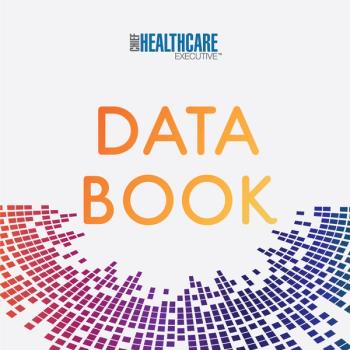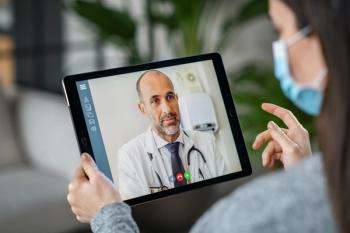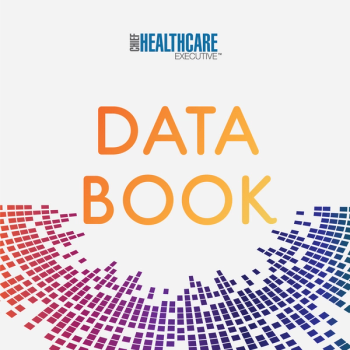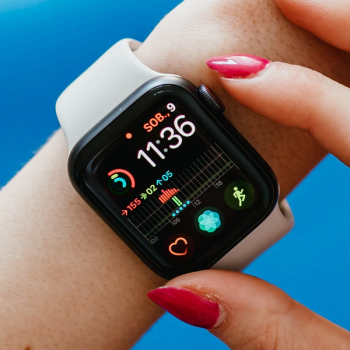
Hospitals receiving publicly reported negative feedback improved their electronic health record medication safety.

Hospitals receiving publicly reported negative feedback improved their electronic health record medication safety.

Tomer Shussman and Hila Glick of OneStep, a physical therapy app, discussed the challenges with traditional physical therapy, how OneStep improves the proportion of patients who complete their therapy, and more.

Automated patient engagement technology can streamline communications without excessive costs, implementation challenges or healthcare providers losing the "human touch."

Owing in large part to the pandemic, telehealth is growing increasingly popular with consumers.

Clay Ritchey, CEO of Verato, highlights the administrative and financial benefits that patient-matching technology can provide hospitals and health systems, as well as how it can improve the patient experience.

Craig Newman, the chief strategy officer at HealthChannels for ScribeAmerica, discusses how technology can be used to help reduce the amount of time and energy providers spend doing administrative tasks.

Telemedicine for diagnosis scaled up dramatically as a result of the pandemic, but there isn’t much known about the impact on diagnostic quality and safety.

Hospitals and health systems started to improve digital capabilities as a result of the pandemic, but that momentum is starting to slow, according to new report.

Ransomware attacks tend to increase around holiday weekends, like Labor Day weekend. Here is a look at some recent healthcare data breaches.

Punit Soni, CEO and founder of Suki, delves into how artificial intelligence (AI) can be used to address burnout among healthcare professionals, as well as misconceptions about the purpose that this technology should serve in healthcare.

A systematic review reveals wearable devices can measure biomarkers of patients in hospitals.

Google Health will spread across different divisions of Google.

Although the world is very much still in the middle of the COVID-19 pandemic, a panel of experts tackled lessons learned so far.

A mind map exercise examines general practitioners' perceptions of the health technology.

Blair Childs, senior vice president of public affairs at Premier, explains how the Improving Seniors’ Timely Access to Care Act could revolutionize how prior authorizations are conducted and how machine learning technologies can help health systems adapt if it is signed into law.

In order for artificial intelligence (AI) in healthcare to be successful, there needs to be more transparency around the data that goes into an algorithm, explained John Halamka, M.D., president of Mayo Clinic Platform.

Tom Knight, founder and CEO of Invistics, discusses how the COVID-19 pandemic has highlighted the need for better solutions for drug diversion, where healthcare employees commit medication theft, within their healthcare organizations and how technology can help resolve the issue.

By improving their cybersecurity hygiene, doctors can protect sensitive medical information.

In an interview recorded earlier this year, Chief Healthcare Executive Associate Editorial Director Mary Caffrey spoke with 2 leaders of Citius Tech about meeting healthcare challenges with digital solutions.

During the pandemic, telemedicine use increased overall, but was more commonly used for established patients and the delivery of psychiatric and behavioral health care and less commonly used for preventive care.

Kate Cordell and Ken Knecht, cofounders of Opeeka, discuss their company’s Person-Centered Intelligence Solution and how it can help children and their families manage and coordinate their mental health concerns as well as the benefits the tool can have on health systems.

Tanvi Abbhi and Nora Zetsche, MD, cofounders of Veta Health, discuss the company’s remote patient monitoring (RPM) platform and how RPM can be used to personalize and improve healthcare for patients with chronic diseases.

Shah will bring unique insights into Maven’s 24/7 model that seeks to reduce unnecessary C-sections and emergency department visits and improve clinical outcomes.

Sundar Kamak, global head of manufacturing at Ivalua, discusses the COVID-19 pandemic’s effect on healthcare supply chains and how technology can help alleviate those issues.

During the pandemic, any health service that could go virtual, did. In the last 12 months, demand for virtual care has risen sharply, but shifting to a centralized virtual care hub is not easy pivot for many traditional health providers.